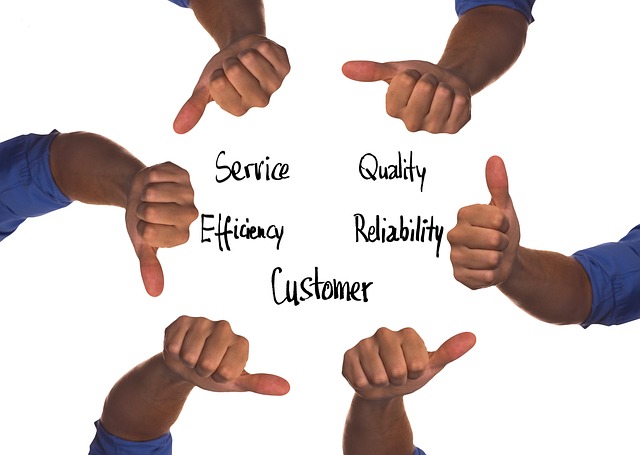The Meaning of Personal Integrity
Personal integrity stands as a cornerstone of moral character and is a fundamental aspect of who we are as individuals. At its core, personal integrity encompasses the qualities of honesty, consistency, and trustworthiness. People with strong personal integrity act in accordance with their moral principles, regardless of whether anyone is watching. It’s more than just avoiding dishonest behavior; it involves being true to oneself and maintaining ethical standards even in tough situations. This steadfastness not only builds one’s character but also acts as a beacon in social interactions, fostering trust in relationships.
To truly understand personal integrity, we should reflect on its components. Honesty is paramount; when individuals communicate openly and transparently, they lay the groundwork for trust. Consistency in actions reinforces one’s credibility. If you say one thing but do another, you undermine not just your integrity but also the trust others place in you. Furthermore, personal integrity isn’t just about the absence of dishonesty; it involves doing the right thing, following through on commitments, and being accountable for one’s actions. In an age where accountability often fades, cultivating personal integrity gives a distinct edge in both personal and professional relationships.
The Role of Personal Integrity in Building Trust
Do you ever notice how an individual with strong personal integrity garners immediate trust? It’s fascinating. When people encounter someone who holds themselves accountable and consistently adheres to their principles, they often feel inclined to place their trust in that person. Trust isn’t given lightly; it’s earned over time and through repeated interactions. Individuals display their integrity through their behavior, and this can significantly impact how others perceive them. In social settings or workplaces, individuals who demonstrate transparent behavior and ethical decision-making become perceived as reliable and trustworthy.
Moreover, the ripple effect of personal integrity should not be underestimated. When one person exemplifies integrity, it fosters an environment where others are encouraged to do the same. This creates a culture of trust and accountability, whether in a community, organization, or family. When people prioritizing integrity set the standard, it often leads to deeper relationships, teamwork, and cooperation among members. Trust flourishes in environments where personal integrity is celebrated and upheld.
Personal Integrity and Professional Development
Moving on to professional settings, personal integrity can significantly influence career advancement. Employers today seek individuals who demonstrate not only technical skills but also strong ethical values. They look for team members who can be counted on to act with integrity even when faced with challenges. This concept ties directly into personal development. By investing in your integrity, you also invest in your career. Imagine a workplace where every individual operates with honesty and respect. Such an atmosphere boosts morale, enhances collaboration, and ultimately leads to higher productivity.
Additionally, developing personal integrity often translates to several professional traits like leadership, accountability, and resilience. Leaders who embody integrity often inspire others; they automatically establish a framework of reliability and expectations. People rally behind leaders whose words match their actions. Furthermore, challenges are inevitable in the professional realm. Those with personal integrity tend to confront these hurdles with an ethical mindset, earning them respect from colleagues and management alike. Thus, focusing on personal integrity is not just about personal growth; it permeates through every level of professional development.
How to Cultivate Personal Integrity
Cultivating personal integrity requires deliberate effort, self-reflection, and a commitment to personal development. Start by evaluating your values. What principles resonate with you? What ethical standards do you want to uphold in your daily life? Write them down. Having clarity on your values provides a strong foundation for your actions. Follow this with setting specific intentions to align your decisions with those values. This doesn’t mean you’ll always be perfect, but progress comes with recognition and adjustments when you stray from your integrity.
Another practical strategy involves surrounding yourself with individuals who value integrity. Influences matter; when you engage in circles of like-minded people, their values can uplift your own. You’ll find it easier to embody integrity when it’s normalized in your environment. Engage in open discussions around integrity; having conversations reinforces the importance of ethical behavior in various situations. Furthermore, practice self-accountability—an essential aspect of personal integrity. Regularly reflect on your actions. Are they in alignment with your values? Honest self-assessment leads to growth and stronger integrity.
The Challenges of Upholding Personal Integrity
Upholding personal integrity can be a daunting challenge. In a world that often prioritizes results over processes, standing firm in one’s values can feel like swimming against the current. Many face ethical dilemmas daily, whether it’s at work, in social gatherings, or even at home. The temptation to compromise one’s integrity can stem from peer pressure, the desire for acceptance, or even fear of repercussions. Therefore, one must develop resilience against these challenges, firmly rooting oneself in ethical principles.
In these moments of conflict, it can be helpful to revisit the rationale behind your values. Reflecting on what integrity means to you helps you remain steadfast, no matter the situation. Additionally, speak out when you witness a lack of integrity in others. While this can be uncomfortable, initiating conversations about ethical behavior promotes accountability and integrity among those around you. By leading by example, you set standards not only for yourself but also for others who may be wavering in theirs.
Personal Integrity in Relationships
Relationships, both personal and professional, thrive on trust. Personal integrity serves as the bedrock of this trust. When individuals engage with transparency and consistency, they foster deeper connections. Imagine friendships where both parties openly share their thoughts and feelings without fear of judgment—this is a direct result of integrity. A relationship built on trust enables partners to rely on each other, create open lines of communication, and address issues honestly.
Moreover, personal integrity can aid in conflict resolution. When disagreements arise, those with strong integrity approach the situation with a mindset of understanding rather than defensiveness. They seek to resolve matters fairly and uphold their principles even when tensions run high. This level of honesty encourages others to respond similarly, creating a healthy dialogue. Hence, personal integrity not only enhances relationships but also enriches experiences by fostering a sense of safety and security.
FAQs
- What is personal integrity?
- Personal integrity refers to the quality of being honest and having strong moral principles. It means being consistent in your values and actions, regardless of external pressures.
- How does personal integrity build trust?
- Personal integrity builds trust by demonstrating reliability and consistency. When people observe that your words align with your actions, they are more likely to trust you.
- Why is personal integrity important in personal development?
- Personal integrity is important in personal development because it helps establish a strong moral foundation. It guides decision-making and promotes personal growth and accountability.
- How can one improve their personal integrity?
- One can improve their personal integrity by assessing their values, being accountable for their actions, surrounding themselves with ethical individuals, and practicing honest communication.
- Can personal integrity affect professional relationships?
- Yes, personal integrity significantly affects professional relationships. It fosters trust, enhances teamwork, and contributes to a positive work culture, leading to better collaboration and productivity.



